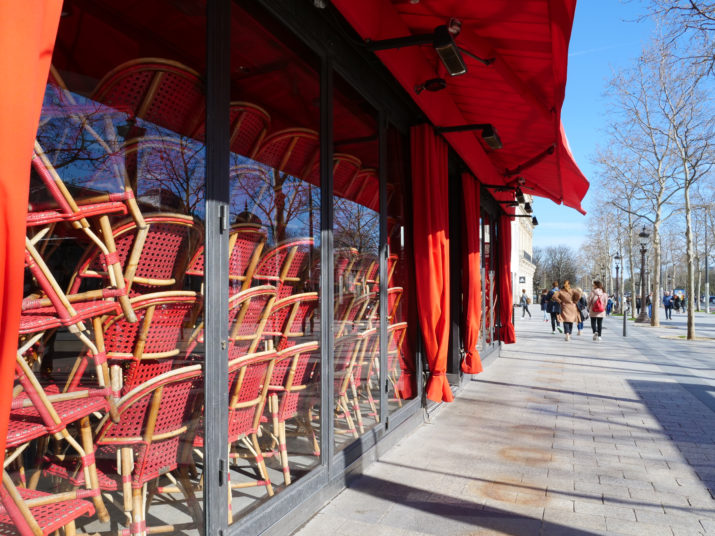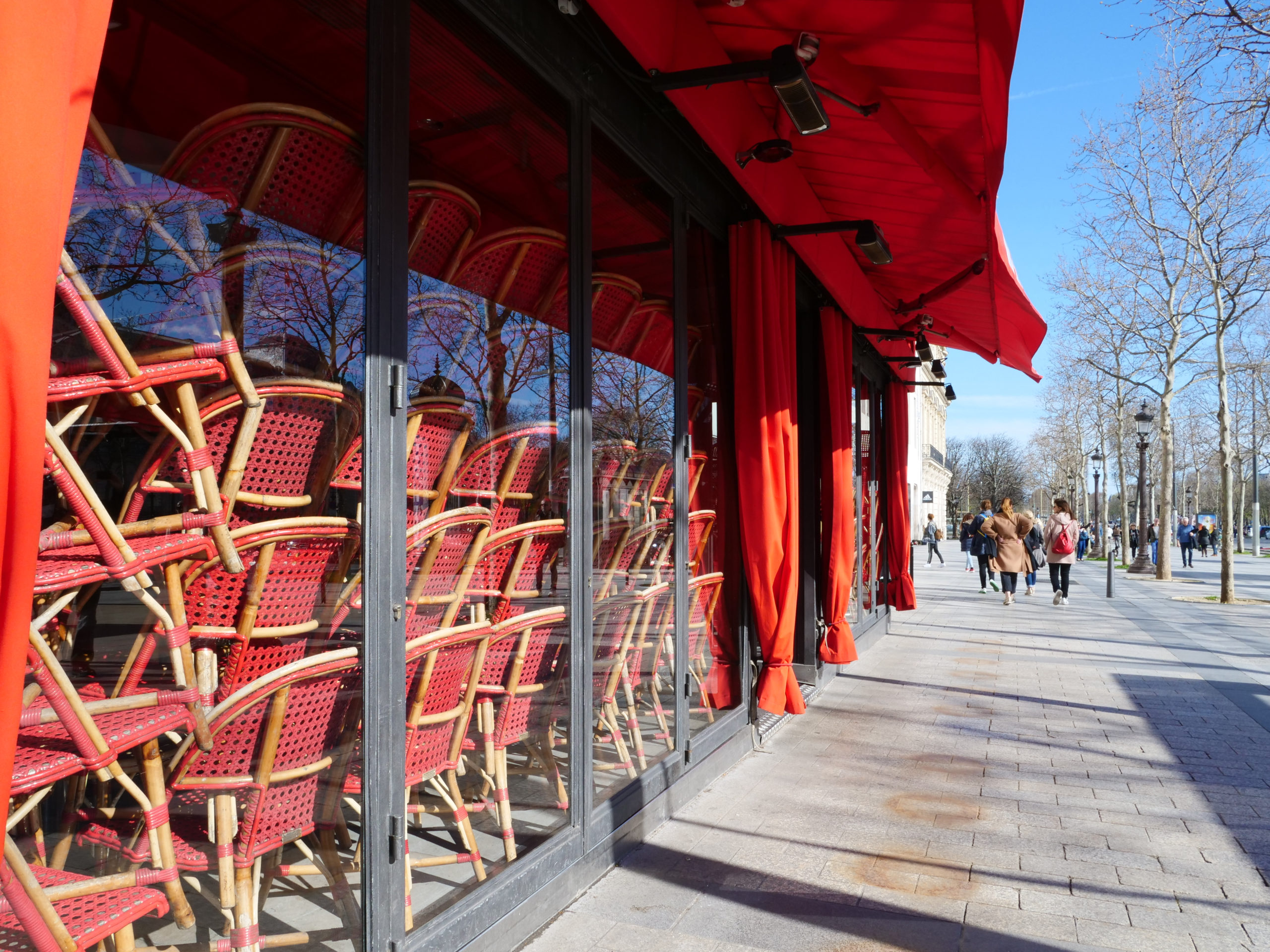

This is part of a special series on the Novel Coronavirus (COVID-19) pandemic.
Le coronavirus, c’est l’État (The coronavirus is the state) read the headline of a recent article on life in France’s banlieues (suburbs) during COVID-19.[1]
Due to the high number of coronavirus cases, France took extreme measures in order to minimize its spread. On March 17th, the country went under lockdown, or l’état d’urgence sanitaire (state of health emergency).[2] Residents needed an Attestation de Déplacement Dérogatoire (signed certificate) in order to travel more than five kilometers from their homes (if they are traveling for essential work or healthcare).
While everyone in France is subject to this decree, early evidence reveals it has been differentially applied. COVID-19 is not the equalizer or leveler some have suggested. Rather, this state of health emergency has disproportionately affected some populations compared to others, as some communities are more policed and surveilled than others. And these communities and populations are those that were already marginalized in France before COVID-19.
For example, on March 19th, a Black woman was stopped during an identity check, or un contrôle d’identité, after grocery shopping for her and her son in Aubervilliers, a banlieue north of Paris.[3] During these checks, individuals are asked for their identification.[4] However, during the stay-at-home order, these identification checks take on a different meaning—that being to ensure that people are protecting against the spread of the coronavirus. According to a video widely circulated on social media, when the woman was walking home from the store, police officers approached her and asked for her attestation. She only had the handwritten version, and not the printed version (which normally should have sufficed). She started to explain this to the officers, but they immediately start insulting her and calling her names, such as sale pute (dirty whore). Tensions quickly escalated and she was tased by one of the many officers who surrounded her and her younger brother. She was later arrested and taken to a nearby police station, and held in a cell for about an hour before she was released.
And on April 18th, in Villeneuve-la-Garenne, a banlieue in the Hauts-de-Seine département north of Paris, residents rebelled against the recent attack of a motorcyclist during an identity check.[5] A man injured his leg after colliding with the door of a police car, which some residents felt was purposely opened by officers in order to harm him as he approached the car. In the days afterward, some residents burned cars and shot fireworks and police fired teargas at protestors. A recent Amnesty International report[6] revealed how police violence, particularly during these identity checks, has not at all attenuated during the period of confinement. One French media account reports twelve deaths due to the police since France’s lockdown began.[7]
But incidents such as these are not new, and should be not surprising. As a sociologist and ethnographer of France for over a decade, I know that these incidents are part of the ongoing way certain populations, particularly racial and ethnic minorities, are relegated to the margins of mainstream society. My ethnographic research examines how this occurs and the racial logic that this marginality reveals. In order to understand certain populations are marginalized during COVID-19, we must pay attention to how they have been marginalized before COVID-19.
In Citizen Outsider: Children of North African Immigrants in France, I demonstrate how the middle-class segment of this second-generation population is denied cultural citizenship to actually be accepted as French as others. And this applies not only to the middle-class segment, but all racial and ethnic minorities in France, particularly those descended from former French colonies. Cultural citizenship as a framework reveals how individuals can be included in society in a formal sense, yet denied inclusion more broadly. It signifies a claim to belonging that is accepted by others. I frame this population as “citizen outsiders,” a term which political scientist Cathy Cohen (2010)[8] uses both to characterize the precarious social locations of Black American youth, and to complicate the relationship between race, citizenship, and belonging. The middle-class North African second generation is both inside and outside of the citizenry—they have made it, so to speak, but only to a point, as they are continually reminded of how their citizenship and belonging are “suspect” and often questioned by others. My interlocutors are technically French, yet are continually reminded of how they are not seen as French by others—for example, when they are asked, “Where are you really from?” when they identify as French. And we cannot miss the racial and ethnic logic undergirding this. When Black and Maghrébin-origin individuals are asked where they are really from, the implication is that they cannot be French because they are not white. It is telling that this occurs in society that has long denied the existence of racial and ethnic categories. French Republicanism disavows any identity-based categorization, and therefore France does not acknowledge or measure racial and ethnic categories. Yet, race is consequential outside of the existence of formal state categories.
Partly due to what anthropologist Ann Stoler refers to as its “colonial aphasia,”[9] France has resisted reckoning with its colonial empire and its legacies. This erasure of the colonial leads to a “panic” or “crisis” of the postcolonial. France’s current anxieties about immigrants, the banlieues, multiculturalism, or Islam need to be properly situated in its colonial history, specifically in the Maghreb, Sub-Saharan Africa, and parts of Asia and the Caribbean (this explains, for example, how two French doctors can suggest during a televised interview to test potential vaccines for the coronavirus in Africa).[10]
So, racial and ethnic minorities are often read or understood as being outside of France, or outside of French society—and relegated to its margins. As Houria Bouteldja, a French activist of Algerian origin, who started the group and political party, Parti des Indigènes de la République, wrote in her recent book, Whites, Jews, and Us: Towards a Politics of Revolutionary Love:
It only takes one generation for an Italian, a Portuguese, or a Pole to become really French, while this dignity will always in effect be denied to the old, deported Africans who remain relegated to the Hexagon or the dusty corners of the Empire … as for the metropolis, it parked them on reservations with their children. Too Arab to be French. To indigenous to be white … between white people and us, there is race. It is constitutive of this republic. It will always rise between us (116).
Houria, and other descendants of migrants from former French colonies, continually face a France that denies them cultural citizenship, a France that that sets them apart. To give another example, consider Karim, a twenty-nine-year-old of Moroccan origin who lives in the banlieue of Poissy, who I met about a decade ago. He finds it frustrating how descendants of postcolonial migrants are not accepted as fully French. As he explained to me:
They don’t want me. They tell me to integrate. Me, I don’t want to integrate. I am French. I don’t need to integrate. I was born in France, I respect the laws of the Republic. . . . But they still tell us, “No, you’re not French. You’ll never be French.” They tell us that because our parents have foreign origins, we automatically do too. . . . We’re sometimes obligated to hide our differences, as if we’re ashamed of them. But I’ve arrived at an age when I tell myself, “It’s my difference. I am not looking to put it out front, but I don’t want people to tell me to hide it.”
This is the dilemma that Karim and other ethnic minorities face: whatever they do, whatever they accomplish, they are not accepted as full citizens. It is never enough.
My ongoing research on anti-racism activism against state-sponsored violence further reveals this. Identity checks by the police, which anthropologist Paul Silverstein refers to as “citizenship surveillance,” remind individuals of “their place.” This is one of the myriad ways that a “suspect citizenship” is created and reinforced—belonging that is tenuous and subject to removal at any point. Certain populations, such as Black and Maghrébin-origin individuals, in certain communities, such as Paris’s 20th arrondissement or the département of Seine-Saint-Denis, were surveilled more than others before the COVID-19 lockdown because they are understood as more of a threat to French society than other communities. And they are surveilled more now during COVID-19.
The incidents of police violence during the lockdown in Villeneuve-la-Garenne, Aubervilliers, or many others I could mention, remind me of the 2005 uprisings that swept banlieues throughout France. In that case, Zyed Bouna, a seventeen-year-old of Tunisian origin, and Bouna Traore, a fifteen-year-old of Malian origin, were electrocuted in a substation as they fled police in Clichy-sous-Bois, a Parisian banlieue, apparently trying to avoid un contrôle d’identité. Outrage about their deaths led to uprisings which lasted a few weeks, and another state of emergency (by then-President Jacques Chirac). And then Interior Minister (and later president) Nicolas Sarkozy called individuals involved in the uprisings racaille, or scum, and suggested cleaning the banlieues with a Kärcher (a brand of high pressure water hose). Over a decade later, the police officers involved in Zyed and Bouna’s deaths were cleared all over charges related to their deaths.
More recently, In July 2016, Adama Traoré, a twenty-four-year-old Black construction worker died under unusual circumstances after being arrested in the banlieue of Beaumont-sur-Oise, north of Paris. The police first claimed that he had died of a heart attack and then later said he had a severe infection. His family is asking for another autopsy, punishment for the police officers involved, and further investigation because they say he had no chronic health problems prior to his death. Assa Traore is his thirty-two-year-old sister, who is leading the movement for justice for Adama as well as other victims of police violence, or as she explained to me, “forgotten populations who know the police only as an invading force.” Once, when I met with her as she was signing copies of her first book, Lettre à Adama, at the offices of Seuil, her publisher, she explained, “We don’t see people like Adama as a human, a son, a brother … even I’ve been controlled in these neighborhoods … What’s happening is France is having an identity crisis.”
And this “identity crisis” is only heightened during COVID-19. Minority populations are responding to a violence that is not new, but rather an extension of the violence of French colonialism. The quarantine period reveals how some individuals, even those who are citizens, are forever seen as suspicious. This is another way of thinking about how racial marginality is produced on micro, meso, and macro levels of society. Individuals like Zyed or Bouna or Adama Traore are produced as suspect citizens. Full belonging is never granted.
Cameroonian philosopher Achille Mbembe’s framework of necropolitics[11] refers to how the state exercises power over defining which populations are disposable, or “who may live and who must die.” Necropolitics is instructive in France as it relates to COVID-19, as it reveals how already marginalized populations are further marginalized during the state of health emergency. COVID-19 only exacerbates and solidifies boundaries of inclusion and exclusion in French society. As French Republicanism continues to mark, rather than erase, racial and ethnic distinctions, France creates more of a “bright boundary” (Alba 2005)[12] between full citizens and suspect citizens. Considering all of this, it is not surprising that some feel that the actual Coronavirus is the state.
Jean Beaman is Assistant Professor of Sociology (with affiliations with Political Science and the Center for Black Studies Research) at University of California, Santa Barbara, and Executive Committee member of the Council of European Studies. She was previously on the faculty at Purdue University and has held visiting fellowships at Duke University and the European University Institute (Florence, Italy). Her research is ethnographic in nature and focuses on race/ethnicity, racism, international migration, and state-sponsored violence in both France and the United States. She is author of Citizen Outsider: Children of North African Immigrants in France (University of California Press, 2017).
References:
[1] https://www.lameute.info/posts/violences-policieres-villeneuve-la-garenne-le-coronavirus-cest-letat?fbclid=IwAR3WlWKvip4Ebm89kTLg3RNYoKp9wOuFyLD-hRzalEWw0DdL1yWKVDyGAd4
[2] France started a gradual déconfinement (end of the lockdown) on May 11th. (https://www.nytimes.com/reuters/2020/05/12/world/europe/12reuters-health-coronavirus-france-casualties.html).
[3] https://actu.fr/ile-de-france/aubervilliers_93001/coronavirus-seine-saint-denis-est-tasee-frappee-ne-pas-avoir-montre-attestation_32488961.html?fbclid=IwAR0DRWTWvoY8DA0CWHs04wpl_V7KZeanbqKi-6bIbYQ_jBqosEAhq5xeY1s
[4] See more on les contrôles d’identité, Fabien Jobard et al. 2012. “Measuring Appearance-Based Discrimination: an Analysis of Identity Checks in Paris.” Population 67(3): 349-375.
[5] https://www.france24.com/en/20200420-police-and-residents-clash-over-heavy-handed-lockdown-enforcement-in-paris-suburbs; https://www.washingtonpost.com/world/europe/paris-suburbs-protests-villeneuve-la-garenne/2020/04/25/55f5a40c-85a1-11ea-81a3-9690c9881111_story.html
[6] https://www.amnesty.fr/presse/des-usages-de-la-force-illegaux-pendant-le-confinement?fbclid=IwAR093jU1kU4jNrfsJOy0D9VKhUQekUIjZ3CtccAdkXlR_cvNftLsqyyCacw
[7] https://rebellyon.info/Meurtres-et-mensonges-d-Etat-la-police-22286
[8] Cohen, Cathy. 2010. Democracy Remixed: Black Youth and the Future of American Politics. New York: Oxford University Press.
[9] Stoler, Ann Laura. 2011. “Colonial Aphasia: Race and Disabled Histories in France.” Public Culture 23(1):121-156.
[10] https://www.aljazeera.com/news/2020/04/racism-row-french-doctors-suggest-virus-vaccine-test-africa-200404054304466.html
[11] Mbembe, Achille. 2019. Necropolitics. Durham, NC: Duke University Press.
[12] Alba, Richard. 2005. “Bright vs. blurred boundaries: Second-generation assimilation and exclusion in France, Germany, and the United States.” Ethnic and Racial Studies 28(1): 20-49.
Photo: Paris, France: Restaurant and Bar are closed on Champs-Elysées, the first day of confinement due to Covid-19
Published on May 22, 2020.




